Nancy Hohenberry, 85, currently resides in Seal Rock, Oregon. She rents out a single room from her good friend, Claire Twitty, where she stays with her cat, Meow-Meow. Just 12 weeks ago, Hohenberry lived in a senior residential community at the Eugene Hotel, and she never thought she’d return to this quiet, coastal life.
Hohenberry initially moved in with Twitty when the COVID-19 pandemic hit. After about a year, however, Hohenberry began to experience substantial health issues. Living all the way out in Seal Rock made it difficult to access medical services, so she made the move to the Eugene Hotel in March 2022. In her time there, she grew to love the community and comradery that so many appreciate about living there.
Now she’s back in Seal Rock after rent increases priced her out of the Eugene Hotel. The decision to move wasn’t easy. She would deeply miss living there, and would once again have to drive five hours a day several times a month in order to receive medical services. Yet, with the jump in price that’s occurred at the hotel, it’s no longer a viable option.
The Eugene Hotel is a senior living community located in the heart of the city that has seen price increases after falling under new ownership in 2022. After an acquisition by DiNapoli Capital Partners, a Californian real estate investment firm, the cost of living at the Eugene Hotel jumped from a 3% annual increase to 14.6%, the maximum under the legal limit in Oregon. DiNapoli Capital Partners did not respond to Ethos Magazine’s calls requesting a comment on this change.
This rent hike has forced tenants of the hotel to consider the sudden reality of relocating. Several seniors living at the Eugene Hotel depend on a fixed income provided by Social Security and have cut back on other expenses or found somewhere else to live.
There are many tenants who have made do, but anticipate that if the maximum allowable rent increase percentage makes another jump next year, they too will have to leave.
“Even if we can stay now, because we don’t know what the future is, we can’t comfortably stay here,” says Ulla McKinney, a current resident of the Eugene Hotel.
Another current resident, Judy Bruns, notes that her rent has increased by $220 since the rent hike. She’s had to cut back on spending in other areas of her life in order to pay the new monthly cost of $1,800 for her studio apartment. “I can’t continue to take big hits like that, and we don’t know what that’s going to be from year to year,” Bruns says.
Carol Link, who has been a resident of the hotel for over three years, feels ready to search for alternative options if the hotel sees another price increase in the next year. “It’s gotten to the point where it does not really feel financially sensible for me to stay here,” she says. “I’ve been biting bullets for so long that it’s habit. If they come up with another 15 percent next year, it’s sayonara.”
Link’s future might involve taking up residence with family members, something that several seniors are considering. Others who have had to move out due to the price have sought out other affordable housing in Eugene, though there is not much. In Hohenberry’s case, it meant moving all the way out to the coast in order to find an affordable, feasible option.
Hohenberry had been living at the Eugene Hotel for two weeks short of a year when she made the decision to move out. She first moved into her apartment at the hotel after receiving surgery, when she was feeling weaker than she does now. “I was not doing well when I moved in there,” Hohenberry says. “And I thought, ‘well you know, this is the end of the road.’”
“But I came back to life,” she says.
Seeing the residents of the Eugene Hotel being such active participants in their community, overcoming their individual hardships and flourishing in older age helped Hohenberry believe that she could, too. “I started thinking, ‘how can I get better? How can I start going on trips with these people? How can I be able to go to movies every night?’” she says.
The Eugene Hotel provides several activities to bolster community engagement for seniors, including trips around the city, performances at the hotel, movie nights, bingo nights and more. For many, the aspect of community at the hotel helps them feel liberated and supported. Hohenberry has been sad to leave behind the community at the hotel. While she, her housemate and their friends are able to play the occasional card game, there was an energy at the Eugene Hotel that can’t be replicated.
“For many of us who might have been isolated in our homes had we stayed there, here we had a community,” says Beth Weldy, a current resident of the Eugene Hotel. She believes that being surrounded by like-minded people becomes very important as one gets older. “Our friends are here, our activities are here, so staying in this community was important,” she says.
Mearl Grabill, another current resident at the hotel, concurs that the community and activities that exist at the hotel are vital for helping everyone feel a sense of belonging. “The activities, it just makes it feel a lot more hopeful,” he says.
“It’s more important as you get older that you have a future that you can kind of predict,” Grabill says. With the recent changes in the cost of living for what was once affordable housing, there has been a new sense of insecurity among the tenants of the Eugene Hotel. “The idea of potential homelessness isn’t an abstract idea,” Grabill says.
Grabill has been working with the Eugene Tenant Alliance to help keep seniors involved in the political process. SB611, a rent control bill being discussed in the Oregon state legislature, would put a cap on annual rent increases for residential tenancies. It has passed out of the Senate committee and is scheduled for a third reading and Senate vote on Wednesday, May 31. If passed, it would then head to the House for consideration.
Grabill helped facilitate and organize around 80 of his peers at the Eugene Hotel to submit testimonials to the state legislature in favor of SB611. Their testimonies revolve around the central question: “Is this the Oregon way to treat seniors?”
The opportunities for political participation, community engagement and socialization that Hohenberry discovered during her time at the Eugene Hotel made her feel much more capable. As her health improved physically, she was also healing in other ways.
“I got to where I was waiting for 3:30 to get myself ready to go down at 4:30 to have dinner at 5:00,” Hohenberry says, recounting the excitement she felt to participate. “I was waiting for the time 6:00 to come around and go see the movie and see who was there.”
She recalls always feeling a sense of belonging and a level of care in the community, as well as from the staff that worked at the hotel. “I never felt like I didn’t matter. It was always, ‘good morning, Nancy, how are you today?’” Hohenberry says.
Hohenberry remembers several instances where she felt supported for small acts of kindness that accumulated over time. Between staff offering to bring her heavier packages up to her room, to having the option to have dinner brought to her room, no questions asked, she felt like she wasn’t just another person taking up space; she was valuable and important to the community.
“I miss the people who sat at my table,” Hohenberry says. She still makes an effort to communicate and visit her friends from the hotel when she comes into town, but she says “it isn’t the same.”
Hohenberry is very fond of the time she spent at the hotel, and is a strong believer in the effectiveness of the model of independent senior living. “I think for seniors to live in a collective like that is very very good mentally, spiritually, physically,” she says. “It brings the best out in people.”
Her positive experiences with the hotel helped instill within her a new sense of capability and empowerment.
“I moved in there thinking this was the end of the game, and I moved out playing the game,” Hohenberry says.
Her newfound hope and optimism for her future are accompanied by lots of plans for how she might focus on her passions. Currently, she’s looking forward to a potential trip to Europe next year with her sister, and her close friend and current housemate, Claire.
She also is interested in purchasing a metal detector, now that she’s living on the beach. “I want to walk up and down the beach and see if I find anything worthwhile,” she says.
Hohenberry is also discussing making a trip to the Painted Hills in Oregon and exploring further her love of geology, examining the fossil beds at the national park.
“I want to go do something like that, and now I think I can,” she says.
Hohenberry still finds herself missing the nearly 100-year-old historic building.
“I do miss it, it was a very memorable part of my life,” Hohenberry says. “When I get to be 95, maybe I’ll go back, even with all its faults.”
The Eugene Hotel is seen from E Broadway, in downtown Eugene, Oregon.


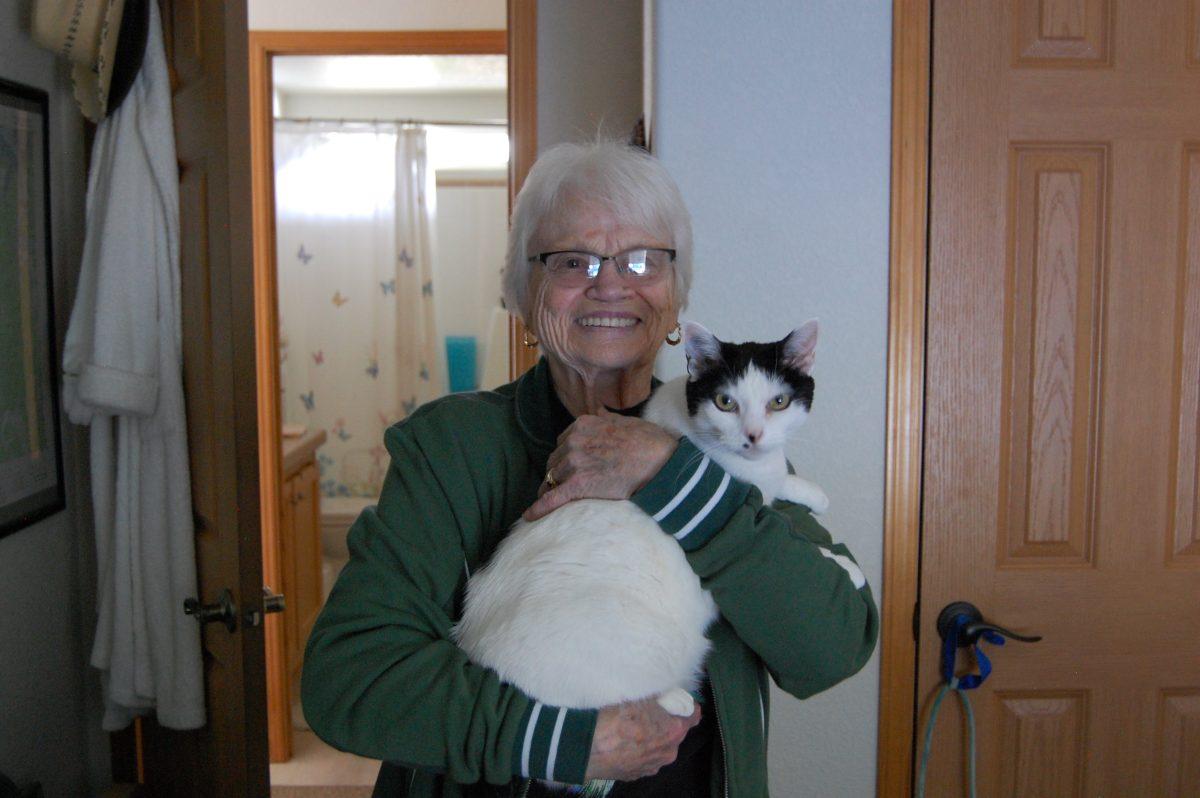
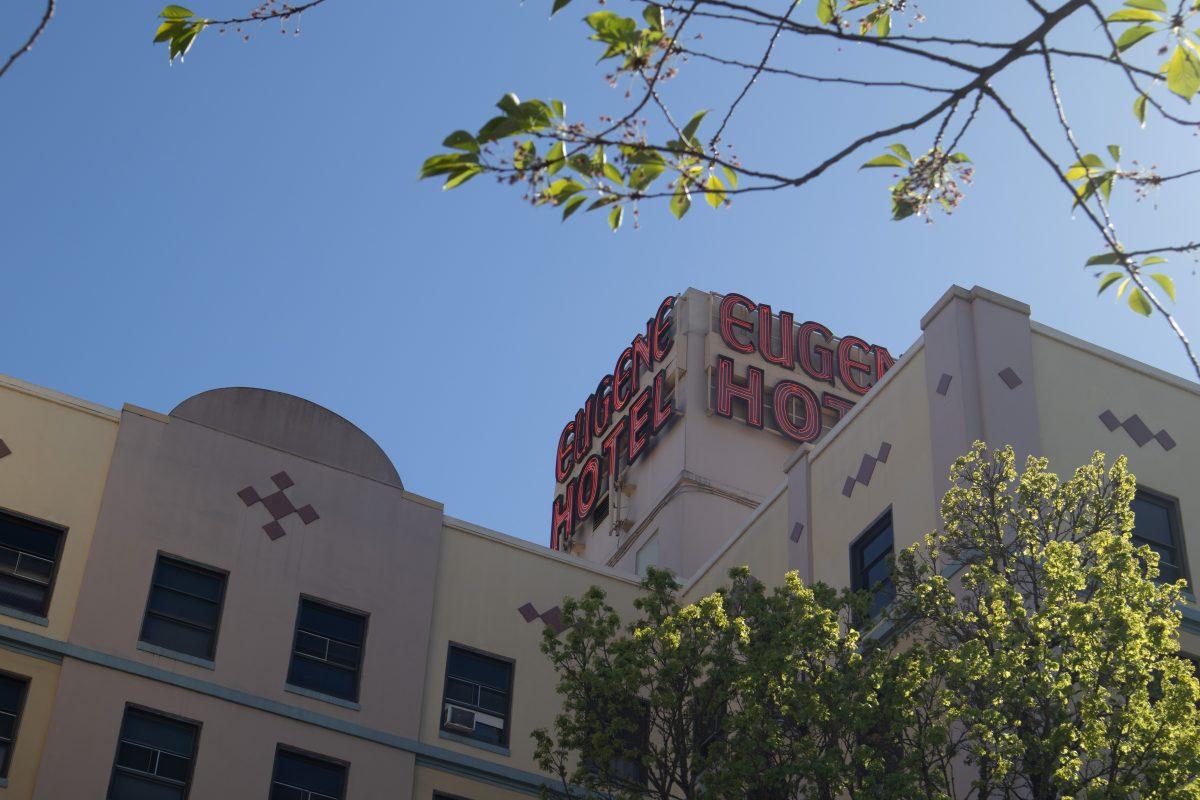


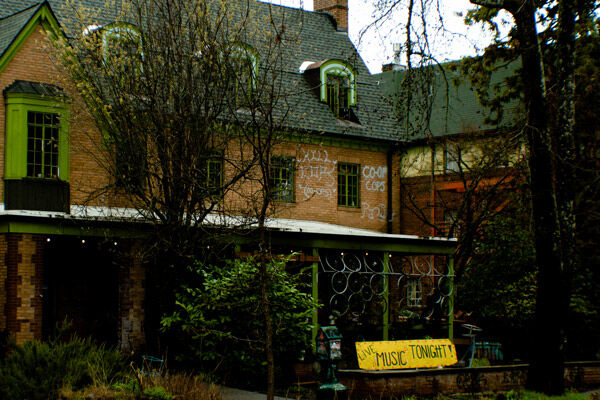
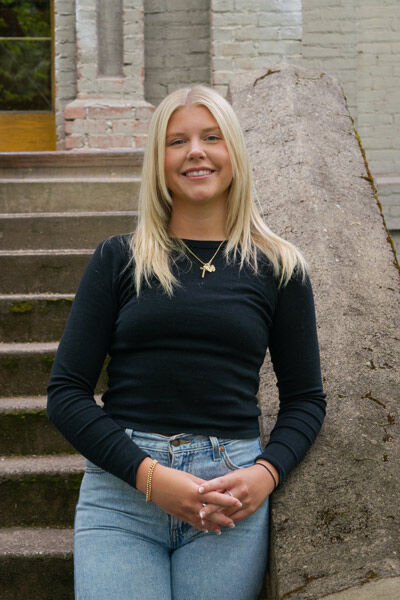
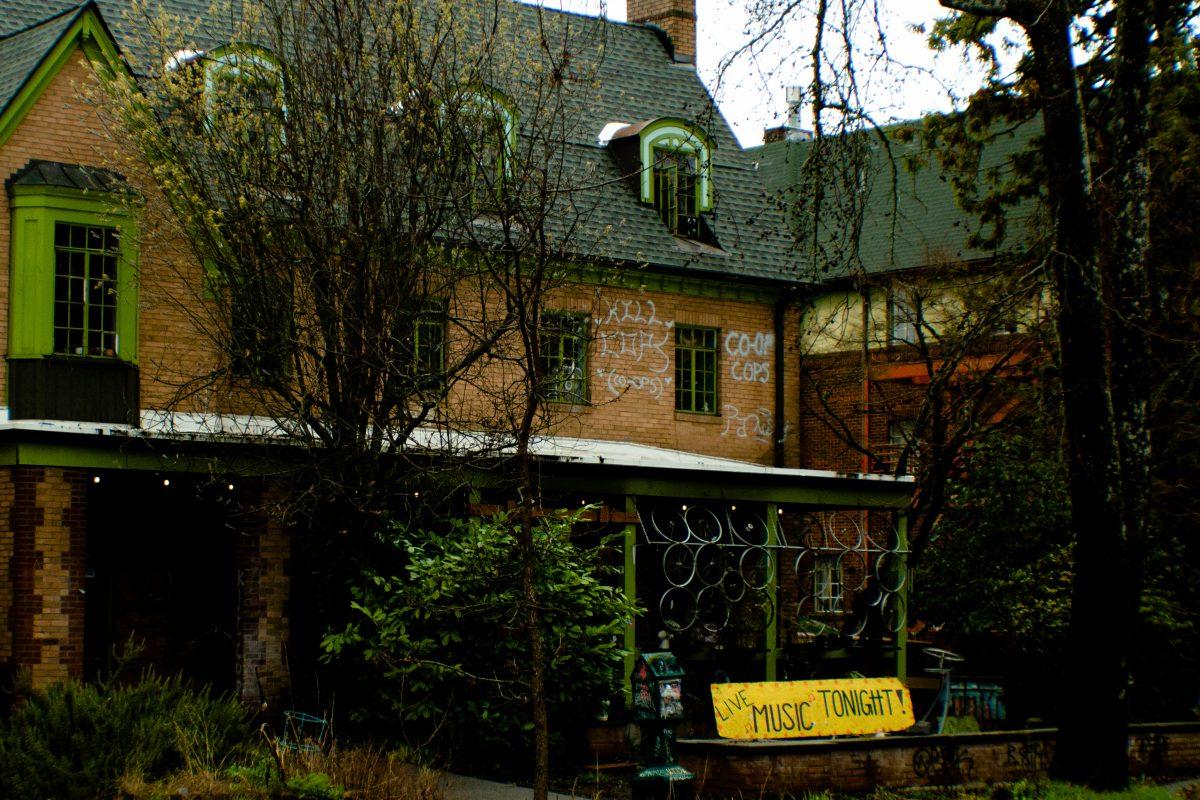


![[Photo Courtesy of the Lara Family]
Ruben embraces his beloved childhood goat, Katrina.](https://ethos.dailyemerald.com/wp-content/uploads/2025/05/katrina-1-1060x1200.jpg)


